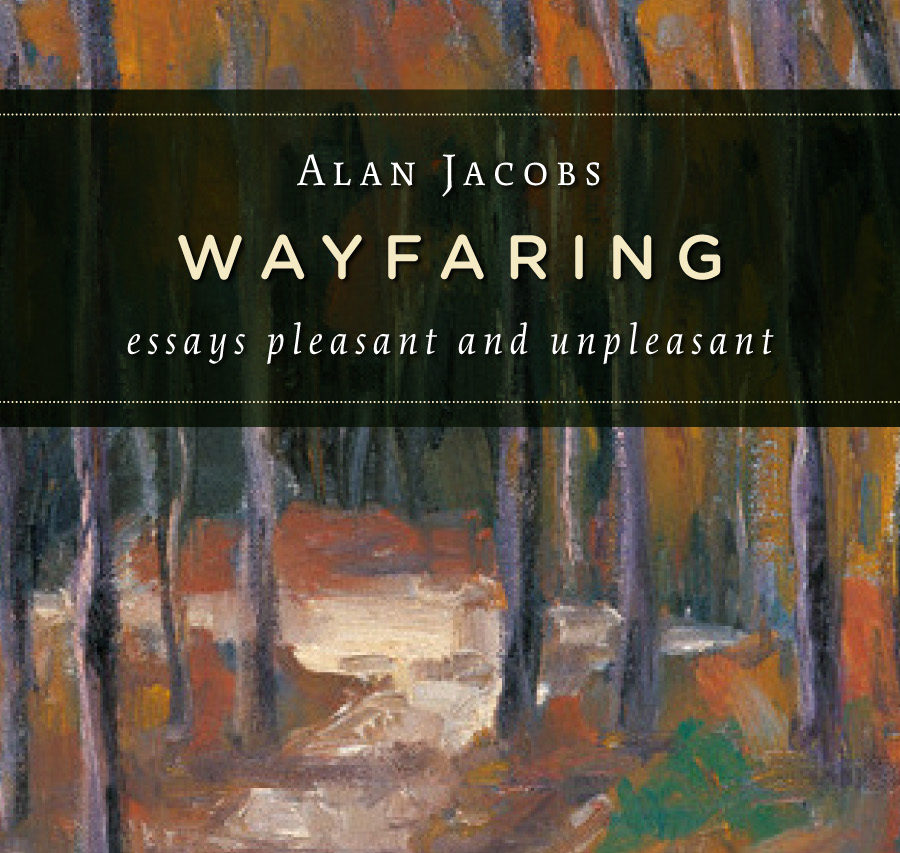
My new collection, Wayfaring: Essays Pleasant and Unpleasant, is now available. Get ’em while they’re hot! (Because, you know, what’s hotter than a collection of literary-cultural-theological essays? I sure can’t think of anything.)

Text Patterns
July 16, 2010

I'm on the fence here. Could you give us an idea of the pleasant:unpleasant ratio? 40:60? 20:80?
Well, on the back cover Carlos Eire says "There is nothing unpleasant here, so never mind the title. All of these essays are gems." And he's a National Book Award winner, so I'm sure his opinion is more reliable than mine.
C'mon, Michael, man up and buy it already.
For what it's worth, Alan, the first thing I ever read by you was "Blessed are the Green of Heart."
I was immediately sold and proceeded to read The Narnian (which had been previously recommended) and Original Sin. I enjoyed both immensely and have put in an order for Wayfaring.
I'm not normally such a sycophant, but I thought I'd take this opportunity to say how much I've enjoyed your work to date. As long as you keep writing them I'll keep buying them.
Also, I discovered Text Patterns right around the time I was thinking about buying a Kindle. You saved me from myself, for which I could never thank you enough (this was back when they were an outrageous $359).
Thanks, Jay! — I'm much obliged for the kind words.
I cannot, in good conscience, by a book that is only just published, but is already available at 60% of MSRP. (So I will have to wait until my conscience is having a bad day, which should be within a fortnight.)
Yea! "The Younger Brother's Tale" is in there! That's worth the cost of the whole book alone. Many congrats, Alan. I'd love to be paid essayist one of these days…
Rusell, please understand that in my case you need to use the term "paid" quite loosely. . . .
And "The Younger Brother's Tale" is my favorite essay in the book.
Jaron Lanier, You Are Not a Gadget, p. 83: "The combination of hive mind and advertising has resulted in a new kind of social contract. The basic idea of this contract is that authors, journalists, musicians, and artists are encouraged to treat the fruits of their intellects and imaginations as fragments to be given without pay to the hive mind. Reciprocity takes the form of self-promotion. Culture is to become precisely nothing but advertising."
What little I make may not be there for long. . . .